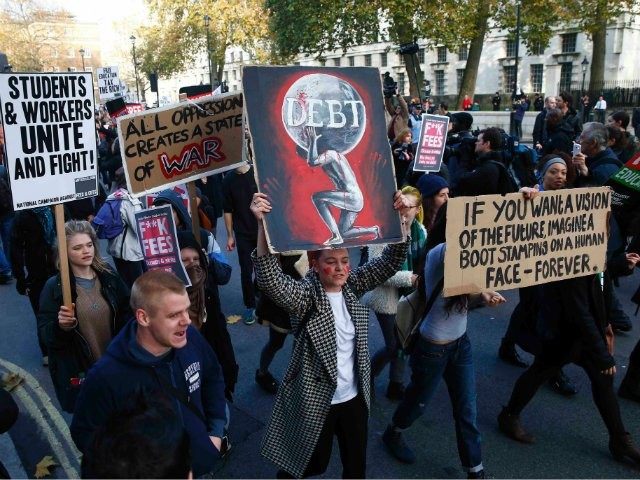Last week I spent the day at Facebook’s London headquarters, which was playing host to a Q&A session between the main party leaders and those two words no one in politics can say without sounding about ninety: “young people”.
The event was partly an attempt to show that, despite common consensus, these mythical “young people” are actually super-engaged in current affairs and political discourse. The premise, therefore, that politicians are letting them down by failing to adequately address their concerns and lobby for their votes.
It should have been a heartening day. At last, politicians and “young people” were sitting down together in a room, with the eyes of the print and broadcast media on them. At last, “young people” could explain to politicians why they feel so let down and politicians could try to convince them that they had the answers for the next generation.
Instead, I came away feeling more than a little underwhelmed, and both the questioners and their subjects were to blame.
Time and time again, the teens and twenty-somethings in the room aired the same grievances: their tuition fees had been trebled under this government, their Education Maintenance Allowance – a subsidy paid to teenagers to keep them in school until 18 – had been cut.
A new generation of voters had their chance to set the world to rights and all they could really come up with were two incredibly minor policies which they are wrong about anyway. It is right that this government increased tuition fees for students, because the alternative is minimum wage shelf-stackers paying more taxes to subsidise the higher education of people who have already enjoyed far greater opportunities than them. It is right that EMA was cut, because it was a shoddy, poorly targeted policy which often saw taxpayers’ money ending up in the bank accounts of middle class children with wealthy parents who could look after them anyway.
16-25 year olds do have real grievances. They do have real reasons to feel angry with the current crop of politicians. For fear of antagonising middle aged and older voters, both the Conservatives and the Labour Party have tame, austerity-lite policies when it comes to deficit reduction. This means the debt burden is being kicked down the line for the next generation to pay, even though they were still at school during the financial crisis. That is a multi-billion pound injustice people in their late teens and early twenties should be protesting. Instead they talk about a few thousand pounds more in tuition fees and few hundred points less in EMA.
The politicians are no better. No leader, even the supposedly radical alternative offered by the Greens’ Natalie Bennett, offered anything in the way of inspiration. You can understand the political reasons why Nigel Farage didn’t turn up, but his absence was extremely disappointing nonetheless. Even worse, Ed Miliband promised to publish a “youth manifesto” full of gimmicky pledges seeking to catch the eye of uniformed teenagers. How nauseatingly patronising.
This week George Osborne has been accused of stoking an “intergenerational war” by handing a £7.5 billion gift to older voters in time for the election. “Young people” in response claim they are ignored and screwed over by the political class. They are right. But the political class are not going to change their opinion of under-25s until they themselves step up, engage seriously and turnout at elections in force. Why would a politician consider the interests of the odd 20 year-old voter as equal to the many, many more 60-year-olds who actually bother to take an interest in and take part in politics? It’s all very well criticising politicians for not helping the next generation. But to be taken seriously the next generation have first to look to themselves.

COMMENTS
Please let us know if you're having issues with commenting.